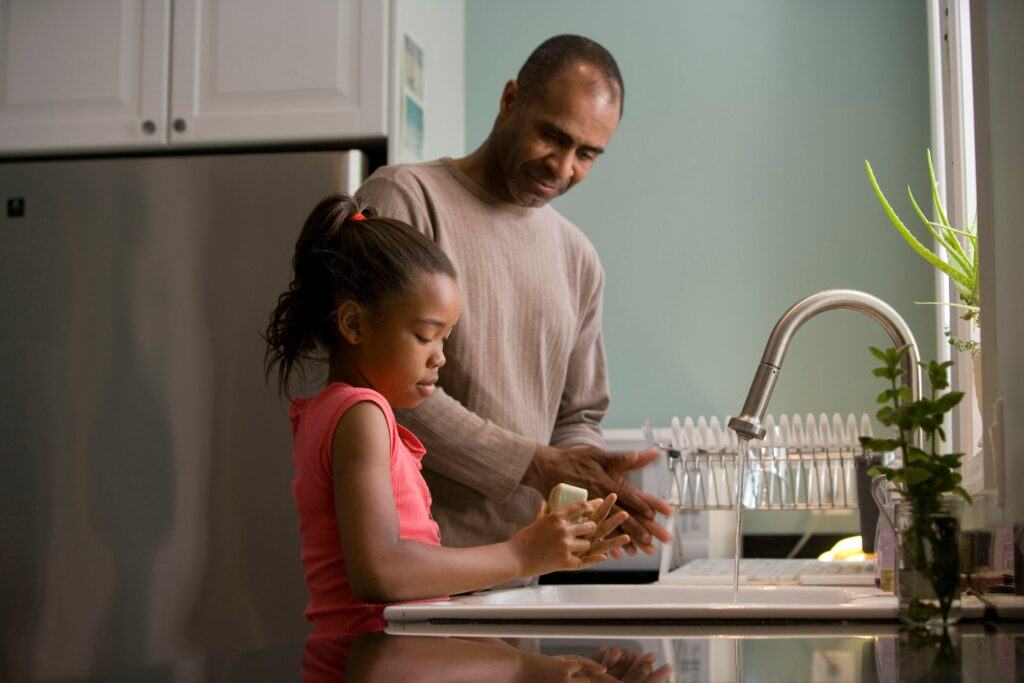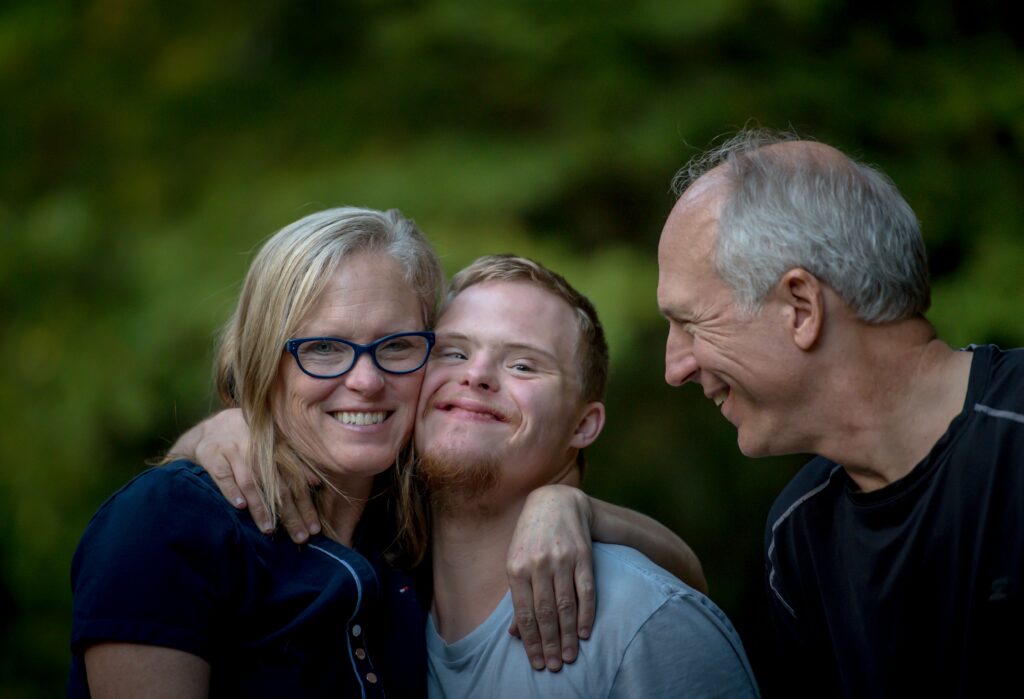Parenting
Parenting: Rewarding and Challenging
For most people, having/adopting children and raising a family is one of the most fulfilling and rewarding aspects of life. At the same time, it can also be one of the most challenging and potentially overwhelming parts of life. None of us are given the ‘secret book of instructions’ on child-rearing, nor are we born with the instinctive knowledge of how to be a loving, effective parent. Yet, parents are responsible for not only meeting their child’s physical and emotional needs, but also teaching them life skills, social skills, and ethical, appropriate behaviors. For new parents, overwhelmed parents, or parents with mental health difficulties , this can be an especially difficult challenge.
Other significant challenges of parenting include providing consistent care, constantly attending to the needs of an infant or toddler, lack of sleep, feeling rushed constantly, facing financial difficulties, scheduling and planning – all while trying to maintain adult relationships. Parenting can be even more difficult when dealing with a child who has special needs or a chronic health condition that requires extra medical treatment and overall care.
The truth is, having children and knowing how to parent are two totally different things. Even if you have a good understanding of what it takes to be a good parent, it doesn’t necessarily mean you can avoid the challenges that often accompany it. To be clear, there is no such thing as a “perfect parent”. It’s a myth. Parenting is one of the most challenging parts of life, and as previously mentioned, nobody is granted a standard rule book or “effective parenting” manual.

What is Parenting Therapy?
Parenting therapy is a type of therapy that works with parents to help them face difficult challenges in parenting. Through this therapy, parents learn effective ways to communicate, direct and guide their children, leading to a calmer family life and happier kids. Parenting therapy also helps parents identify, address, and manage their own past or present experiences that may be affecting the way they relate to their child. In some cases, parenting therapy may also help parents better communicate between each other to maintain a cohesive and structured parenting approach or counselor and an individual seeking treatment. The purpose of therapy is to connect people with their ability to make changes needed to overcome the personal struggles; concerns and challenges they have been dealing with. This is achieved through developing insight and understanding into their distress, learning ways to cope, challenging false narratives, enhancing self-esteem and building confidence.
Parenting therapy provides a nonjudgmental space for parents to discuss tough challenges in parenting and learn how to better manage these tough challenges going forward. Overall, this counseling aims to provide parents with the necessary knowledge, tools, guidance, and support to take care of their children in the most ideal way possible.

Is Parenting Therapy Right for Us?
Every parent can benefit from parenting therapy. Let’s face it: raising children is challenging at best, and at certain times, can be overwhelming. Therapy can help with common parenting challenges such as bedtime issues, tantrums, behavior problems, risk-taking, and defiance. It can help with navigating various learning lessons that are simply part of growing up such as starting school, being respectful, making friends, being responsible, and making good choices. With that being said, some parents have certain circumstances that cause additional difficulties in their everyday life who may benefit even more from parenting therapy. Such circumstances may include: talk about your therapist’s approach, the type(s) of therapy to be used, treatment goals, session length, limits to confidentiality and any other concerns. Evaluating your connection with your therapist will take some time as it is a new relationship and you may be sharing sensitive information that is uncomfortable to talk about.
- Past abuse: parents who have been abused themselves are more likely to engage in similar patterns in their child-rearing. This can impact a child’s ability to thrive and achieve their highest potential; causing children to develop oppositional behavior, anger, indifference, low self-esteem, and aggression.
- Dealing with their children’s personal struggles: children can have their own individual experiences such as trauma, social stress and academic pressure that can affect a parent’s relationship with them and parents may need support and guidance to manage these challenges. The child may also need a specific parenting approach to help them deal with their behavioral and emotional distress.
- Marital Discord: Common marital issues are infidelity, financial troubles and different parenting styles which can leave children feeling inadequate, apprehensive or abandoned, and may confuse their perceptions of love and relationships.
- Divorce: divorce is hard for both parents and children. With divorce, it’s common for parents to be absorbed in their own feelings and distress while also trying to raise their children, which can be exceedingly difficult. Understanding what a child needs during a divorce can be confusing and overwhelming while parents are coping with the loss itself. Divorce also changes the family structure, inevitably resulting in several life changes, such as scheduling, visitations, moving or being bounced back and forth between two households. These changes are stressful for children, often only visible through behavior.
- Health problems: Chronic health struggles can limit the amount of time parents are able to spend with their children. Also, mental health and emotional challenges can complicate daily tasks and affect the way parents relate to their children.
- Coping with loss: losing a person, pet, job, or marriage can affect a parent’s ability to care for their child. During this time, the child may feel lost, abandoned and may act out or become withdrawn.

Our Approach
Countless parents endure the stressful cycle of yelling and feeling anger toward the children that they love. This often leads to feelings of guilt, inadequacy, sadness, frustration and exhaustion. You are not alone in facing tantrums, opposition, sibling rivalry, homework battles, screen addiction, morning routine struggles, avoidance of chores and more. With our help, it is possible to undo these patterns, ensure things go right and reconnect with your child through positive parenting practices! At Awakened Path, we believe that parents are their children’s biggest and best asset in achieving a successful, high-functioning life.
Children’s well-being and behavior is influenced by all the individuals involved in their upbringing. Caregivers might include biological and adoptive parents, foster parents, single parents, step-parents, older siblings, and other relatives and non-relatives who play a meaningful role in a child’s life. In other words, the term “parent” applies to an array of individuals whose presence impacts the health and well-being of children. When people conceive or decide to raise a child, it is impossible to predict which combination of genes will be expressed; influencing personality, energy levels, special needs, intelligence, emotional sensitivity and more.
Therefore, it is only natural that any caregiver is not fully equipped with the exact skill set needed to meet every single behavioral and emotional need their children presents. Moreover, as children grow, develop and undergo new challenges, the demands of parenting must also evolve.
Often times, struggles that emerge in children’s behavior can be corrected through developing a deeper awareness of certain key areas:
- Positive Parenting skills which are evidenced-based practices rooted in teaching parents to discipline in a way that builds a child’s self-esteem and supports a mutually respectful parent-child relationship.
- Human Developmental Stages can help parents understand what behaviors children are realistically capable of from a neurological standpoint based on age, maturity level and other factors.
- Parenting Styles: What are they? How are they developed? Which styles are effective and which are damaging? How to shift into a style that will foster a positive parent/child relationship and a high functioning youngster.
- The importance of and how to involve and align all caregivers who are involved in the parenting process.
- Nutrition and Dietary influences on mood, distractibility and behavior.
Our Testimonials
“I found I could say things with color and shapes that I couldn't say any other way.”
- Georgia O’keeffe
Finding a therapist in New Jersey that you can trust to support you as a parent isn’t always easy. If you’re searching online for “family counseling near me,” our team is here to help your family grow and heal together. Awakened Path Counseling proudly provides quality transpersonal and traditional psychotherapy, at their offices in Middlesex County, New Jersey, and online. Their experienced therapists specialize in serving teens, children, adults, couples, and families. The clinicians at Awakened Path Counseling are passionate about their holistic approach to mental health, addressing your emotional, cognitive, physical, and spiritual needs.

